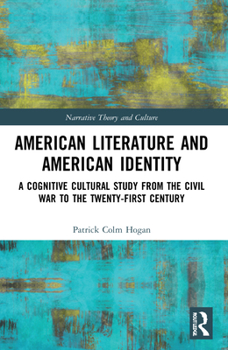American Literature and American Identity: A Cognitive Cultural Study from the Civil War to the Twenty-First Century
Select Format
Select Condition 
Book Overview
Hogan examines how important, post-Civil War authors imagined American identity-understood as universal, democratic egalitarianism-when faced with the nation's often brutal inequalities of race, sex, and sexuality. In Hogan's analysis, this imagination is inseparable from the narrative structures favored by the human mind.
Format:Paperback
Language:English
ISBN:1032125683
ISBN13:9781032125688
Release Date:May 2023
Publisher:Routledge
Length:274 Pages
Weight:0.85 lbs.
Dimensions:0.6" x 6.0" x 9.0"
Customer Reviews
0 rating





